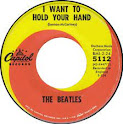I have known Mrs. Pincus for 42 years. We have been married for 40 of those years. I don't mean to brag, but, I have never in my life met a more compatible couple than the two of us. That sounds like a pretty nice compliment, although it could just as well be interpreted as no one else could possibly get along with either one of us for that period of time. Eh... let's just go with the compliment.
Even though we didn't meet each other until we were in our early 20s, we had similar experiences growing up. We had completely different family dynamics. I lived in a working-class neighborhood in the far reaches (although still within the geographical boundaries) of the city limits. She lived in a decidedly more affluent suburb. Her father was gregarious and often anxious to take the family on regular vacations. My father never wanted to go anywhere. Our last vacation taken as a family was when I was seven. After that, I was on my own for travel plans. But, locally, Mrs. Pincus (before she was "Mrs. Pincus") and I (I was still me) went to a lot of the same restaurants, a lot of the same movie theaters, a lot of the same department stores and some of the same local entertainment complexes.
Philadelphia is in close proximity to Hershey Park, home of the world-renowned Hershey candy factory. When I was little, there was a small amusement park near the factory. Back then, visitors were permitted to tour the actual factory and see actual vats of boiling hot chocolate until someone realized that this was not a good idea. A simulated tour was constructed and the small amusement park expanded. My parents took me there. We also went to a tiny amusement park about ten minutes from my house where six-year-old Josh Pincus thrilled to kiddie rides years and years before Walt Disney World was conceived. The future Mrs. P also went to this amusement park as a child. Perhaps we crossed paths and didn't even know it.
 |
| The alleged location |
Over the years, my wife and I have had many conversations, reminiscing about the different places we visited as children. Those conversations always — always! — feature a mention of a place called Care City. Care City, according to my wife, was a small amusement park in small town called East Norriton, Pennsylvania — a tiny municipality in Montgomery County that I didn't know existed until I moved into Montgomery County when I got married. Care City, as Mrs. P recalls, was comprised of mostly kiddie rides, including kiddie swings that were pulled by a pony. Mrs. Pincus gets misty-eyed when she talks about Care City, staring off into the distance, visualizing childhood memories of tiny merry-go-rounds and small boats that went in circles in a real pool of water and, of course, those swings. The conversation usually winds up somewhere else. Mainly because, I kind of steer it someplace else. You see, before I met my wife, I never heard of Care City. No one I knew ever heard of Care City. A simple "Google" search yields no evidence online about Care City. I started to believe that Care City was not a real place and that it only existed in my wife's memory.
A week or so ago, we were out with my son and his girlfriend on a fairly long car trip. Our conversation bounced around from subject to subject until Care City breached the conversation. My wife started to explain to my son's girlfriend all about the wonderous Care City, until I interjected with a typical "Josh Pincus" curveball. "Alleged Care City," I announced with a palpable tone of skepticism in my voice. Mrs. P frowned, dismissively countering that "Josh doesn't believe Care City existed."
 |
| Exhibit A |
My wife has been clearing out stuff from her parents' house in a futile effort to get them to move to a dwelling more manageable for folks of their advanced age. Tucked away in a pile of assorted and unrelated papers, Mrs. P discovered a merchandise bag from — you guessed it! — Care City! It was yellowed and, at some point she had written on it and glued some construction paper squares on it, but there were the big. bold letters proclaiming this non-existent locale as well as the specifics of its location and a few highlights of one's visit to the place (like a delicacy known as "French Fried Hot Dogs"). She proudly brought this bag home to show me... and by "show me" I, of course, mean waving it in my face. But that was not the end of the Care City saga. Not by a long shot. Josh Pincus still needed some shuttin' up.
On Saturday, we had dinner with our friends Consuelo and Cookie. Consuelo grew up right near East Norriton. Mrs. P asked her about Care City, until she realized that Consuelo is 15 years younger than we are and Care City did not exist in her lifetime. (Until recently, I didn't think it existed in anyone's lifetime!) My wife's explanation of Care City was something of an inspiration for Consuelo. After dinner, she immediately posted in an East Norriton Facebook group (well, of course there's one!) asking some of the older members of the group for any information about Care City.
The comments and responses exploded! Evidently, Care City held a special place in the collective memory of many... not just Mrs. P. One person elaborated that it was situated on land owned by the Care family and a different family owned, operated and maintained the rides. At last count, over 40 different people shared their fond memories of beloved Care City with details and anecdotes as clear and concise as though it still occupies the northwest corner of Germantown and Dekalb Pikes. Of course, it doesn't.
But it did. It really did.









-910x1155%20copy.jpg)









